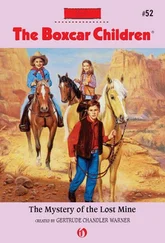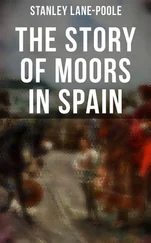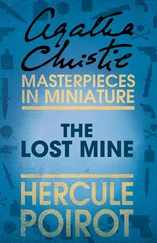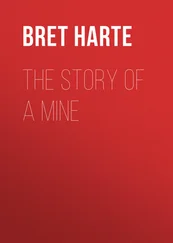Richard Townshend - Lone Pine - The Story of a Lost Mine
Здесь есть возможность читать онлайн «Richard Townshend - Lone Pine - The Story of a Lost Mine» — ознакомительный отрывок электронной книги совершенно бесплатно, а после прочтения отрывка купить полную версию. В некоторых случаях можно слушать аудио, скачать через торрент в формате fb2 и присутствует краткое содержание. Жанр: foreign_prose, foreign_adventure, на английском языке. Описание произведения, (предисловие) а так же отзывы посетителей доступны на портале библиотеки ЛибКат.
- Название:Lone Pine: The Story of a Lost Mine
- Автор:
- Жанр:
- Год:неизвестен
- ISBN:нет данных
- Рейтинг книги:4 / 5. Голосов: 1
-
Избранное:Добавить в избранное
- Отзывы:
-
Ваша оценка:
- 80
- 1
- 2
- 3
- 4
- 5
Lone Pine: The Story of a Lost Mine: краткое содержание, описание и аннотация
Предлагаем к чтению аннотацию, описание, краткое содержание или предисловие (зависит от того, что написал сам автор книги «Lone Pine: The Story of a Lost Mine»). Если вы не нашли необходимую информацию о книге — напишите в комментариях, мы постараемся отыскать её.
Lone Pine: The Story of a Lost Mine — читать онлайн ознакомительный отрывок
Ниже представлен текст книги, разбитый по страницам. Система сохранения места последней прочитанной страницы, позволяет с удобством читать онлайн бесплатно книгу «Lone Pine: The Story of a Lost Mine», без необходимости каждый раз заново искать на чём Вы остановились. Поставьте закладку, и сможете в любой момент перейти на страницу, на которой закончили чтение.
Интервал:
Закладка:
"He is very well, señor; he is now at home. Won't you come in and see him? He said he hoped you would be coming down this morning, as it was mail day."
"I am much obliged to him," answered Stephens. "I am on my way now to the stage station, and I will look in as I return."
San Remo was the place where the weekly mail from Santa Fé to Fort Wingate crossed the Santiago River. It was a village of the Mexicans, and lay just outside the boundary of the four square leagues of the Indian grant.
"That is where we two were going," she answered, "my little sister and myself," and she laid her hand on a little brown maiden of ten years or so, who had come out of the house and now stood shyly behind the elder sister, holding on to her dress. "We have to buy some sugar," she continued, "and there is a new storekeeper at the stage station, and they say he sells cheap."
"Then with your permission, señorita, I'll walk along there with you," said the American. He suited the action to the word, throwing his right leg lightly over the neck of his mule and then dropping both feet together to the ground so as to alight facing the girl.
"Say, Chiquita," and he addressed the younger girl, "don't you want a ride? Let me put you up"; but the child only smiled, showing her ivory teeth and clinging more closely behind her sister.
"Don't be a silly, Altagracia," cried the latter, bringing her round to the front. "Why don't you say 'thank you' to the American señor for his kindness in giving you a ride on his mule?" and she pushed her, in spite of her affected reluctance, into the hands of Stephens, who raised her from the ground and placed her, sitting sideways, in the wide California saddle, and gave her the reins to hold. Then, resting his right hand on the mule's neck, he walked forward towards the store beside the elder girl.
"I heard a new man had moved in and taken charge of the stage station and post-office this week," he said. "Has he got a good stock? – many pretty things for the señoras?"
"They say he has beautiful things, – velvet dresses and splendid shawls," she replied; "but I haven't seen them yet. I've only been in with my aunt to buy things for the house, not to see his dress goods. But I hope my father will take us there soon, before all the best of them are gone. The wife of Ramon Garcia got a lovely pink muslin there. She showed it to me yesterday in her house. He's a very clever man, too, is the new storekeeper; he is a Texan, but he speaks Spanish beautifully, just like ourselves. He has a Mexican wife."
"Ah," remarked Stephens, "has he? What's his name, do you know?"
"Bah-koose," answered the girl, giving full value to the broad Spanish vowels which she imported into the somewhat commonplace name of "Backus." "Don Tomas Bah-koose is his name," she repeated. "He is not old, he appears to be about thirty, and he has three children. But perhaps you have met him; is he a friend of yours?"
"Backus," said Stephens reflectively; "Thomas Backus. No, I can't say that he is; I don't remember ever meeting anyone of that name."
"It sounds almost like our Spanish name, Baca," said she; "but he is not one of the Bacas, though he has been living at Peña Blanca, where so many of them live." The Bacas of New Mexico are a fine old family, sprung from the loins of Cabeza de Vaca, the comrade of Ponce de Leon, one of the heroes of the Spanish conquest.
"Well," said Stephens, "we'll soon see what he looks like, anyhow, for here we are at the store." He lifted the child down from the saddle, and the two girls at once went inside while he tied up his mule to a hitching-post that was set in front of the door.
After he had finished doing so, he followed them in; and stepping across the threshold he was instantly aware of a surprised glance of half-recognition darted at him by a man who stood behind the counter, where he was showing some cotton prints to three shawl-clad Mexican women. "Mornin', mister," said the storekeeper, in English. "Excuse me if I keep you waitin' a minute while I 'tend on these ladies."
"All right," answered Stephens briefly, and he leaned quietly back against the mud-plastered adobe wall till the other should be at leisure. He ran his eye over the shelves, which, like those of most Mexican country village shops, contained a varied assortment that ranged from tenpenny nails to the tin saints whose shrines decorate even the poorest hovel in New Mexico. His gaze reverted to the storekeeper, who was a tall, dark, spare man, with a clean-shaven face, a bilious complexion, and snaky black hair. This, then, was Mr. Thomas Backus, an American citizen married to a Mexican wife. She had certainly helped him to a fluent command of her mother tongue, and Stephens could not help envying the easy way in which he poured out lavish praises of his new goods to the customers whom he was serving. The purchases of these ladies were presently completed, but they still remained in the store carrying on an animated conversation with Don Nepomuceno's daughter, who had joined them in discussing the patterns they had chosen.
"And now what can I do for you?" inquired the storekeeper, looking Stephens in the face as he turned to him.
"Surely I have met this man before, but where?" said Stephens to himself, while he answered Mr. Backus's question by remarking politely, "Oh, I'm not in any hurry, thank you. Won't you serve this young lady first?" and with a slight gesture he indicated Manuelita, who was still absorbed in the muslins of her friends. Rack his memory as he would, he could not recall the occasion when he and Backus had met previously, yet he felt almost certain it had occurred.
"Why certainly, certainly," returned the storekeeper cheerily; "so long as you don't mind waitin' a few minutes," and he turned to the girl. "Then what may I have the pleasure of being allowed to show you, señorita?"
"Two peloncillos, Don Tomas, if you will be so kind," answered the young lady; and two conical loaves of the brown Mexican sugar so popular in the Territory were accordingly wrapped in paper and handed over to her; but it was manifest that the pretty frocks were what were nearest to her heart, and she and her three friends still continued to discuss the subject with all the ardour of connoisseurs.
Meantime Stephens became more and more convinced in his own mind not only that this was not his first encounter with Backus, but that the latter was also engaged in watching him as closely as possible. He chose, however, not to call attention to this by any inquiry when at length the storekeeper announced himself ready to wait upon him, contenting himself with simply explaining the object of his visit to the store.
"I just wanted to see," he said quietly, "if you happened to have a parcel here for me by the stage to-day from Santa Fé. Stephens is my name, John Stephens. It's a parcel from Spiegelberg's," he added explanatorily, "that I'm looking for; a small, heavy parcel; it's Winchester cartridges."
"Oh yes, they're here; the stage driver left 'em for you all right," said Mr. Backus promptly, reaching down for them under the counter and handing them over. "And I think there's some mail matter too for you; I'll just see"; with which remark he disappeared into the little post-office that was boarded off at one end of the store, returning from there presently with some papers in his hand. "I reckon this letter's for you"; he read out the address with the laboured enunciation of a man of limited education. "To Mr. John Stephens, living among the Pueblo Indians, Santiago, N.M."
"Yes, that'll be for me," said Stephens, putting out his hand for it.
"I reckoned as how you must be the man as soon as I seed you come in," answered Backus, handing over the letter along with a newspaper and a postal packet, "'cos by what I hear thar' aint no other American living in this valley."
Читать дальшеИнтервал:
Закладка:
Похожие книги на «Lone Pine: The Story of a Lost Mine»
Представляем Вашему вниманию похожие книги на «Lone Pine: The Story of a Lost Mine» списком для выбора. Мы отобрали схожую по названию и смыслу литературу в надежде предоставить читателям больше вариантов отыскать новые, интересные, ещё непрочитанные произведения.
Обсуждение, отзывы о книге «Lone Pine: The Story of a Lost Mine» и просто собственные мнения читателей. Оставьте ваши комментарии, напишите, что Вы думаете о произведении, его смысле или главных героях. Укажите что конкретно понравилось, а что нет, и почему Вы так считаете.












